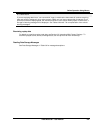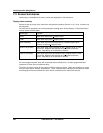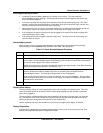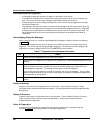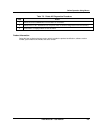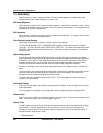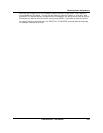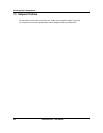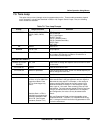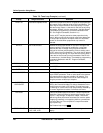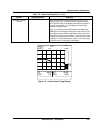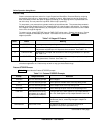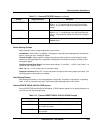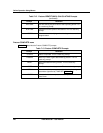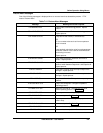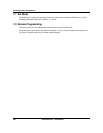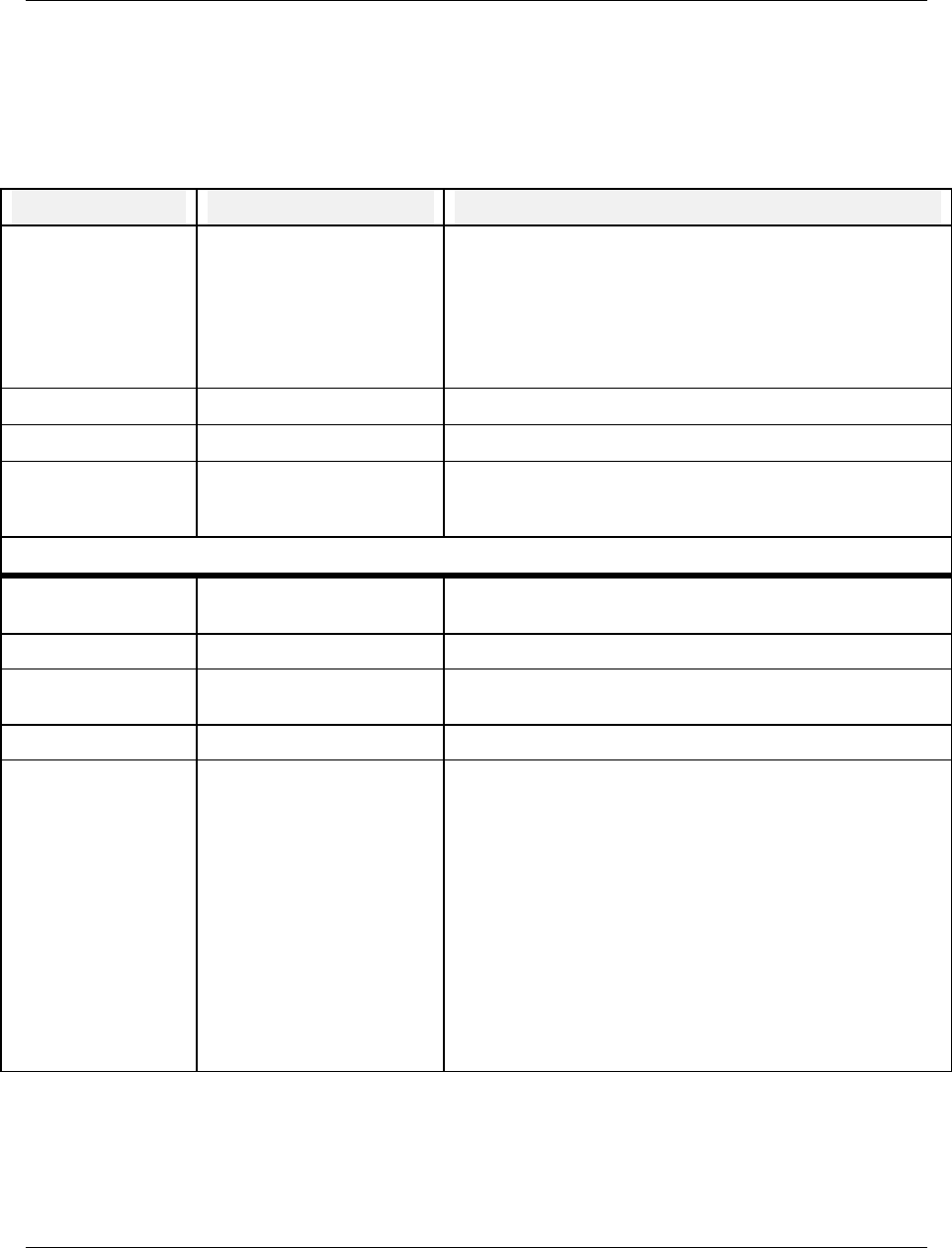
Online Operation Using Menus
Video Recorder – User Manual 235
7.6 Tune Loop
This option lets you tune (change) various loop parameters online. These tunable parameters depend
on the loop type in use and are described in Section 4.8, Program Control Loops. Also, the following
menu choices are available.
Table 7-9 Tune Loop Prompts
Prompt Range/Selections Definition
LOOP TYPE
STD, ADV, SPLIT, ON OFF,
CAS P, CAS S, RATIO,
DIAT
STD: Standard
ADV: Advanced
SPLIT: Split Output
ON OFF: On/Off
CAS P: Cascade Primary
CAS S: Cascade Secondary
RATIO: Ratio
DIAT: DIAT
PV
Number Value of PV
OUTPUT
-100 to +100 Loop output %.
SETPOINT SOURCE
SP1 or SP2 Indicates which setpoint is being used by the loop. SP1 must
be a number; SP2 may be a number or a value from a
function block (remote setpoint).
Bold items are read-only
TOGGLE SETPOINT
SOURCE
SP1, SP2 Press Enter to change the Setpoint Source from SP1 to SP2
or vice versa.
SETPOINT #1 Number Enter the new value of SP1.
SETPOINT #2 Number or parameter Enter the new value of SP2. If SP2 is a remote setpoint you
cannot change the value here.
PROP. BAND #1 See Gain #1.
GAIN #1 Enter a value of 0.1 to 200
for Gain, or 0.5 to 1000.0 for
Proportional Band. Enter
OFF to allow integral only
control.
(Variable Gain1 or PB1 is
available by programming a
constant's Destination with
GN or PB. See Program
Constants, Section 4.16.)
Gain is the proportional gain entry for the control loop (The
value entered here is the gain applied to the error signal to
determine the loop output. For example, a 10% change in
process variable (with respect to the input range) from a
balanced condition will result in a 10% change in output,
when a gain of 1.0 is used. Enter a starting value at initial
configuration. The value may be altered Online for final loop
tuning. If an indirect source is specified as in an adaptive
gain configuration, the value can only be altered at the
source.
Gain and Proportional Band are interchangeable values
(Proportional Band = 100/Gain). For loops with dual tuning,
Gain 1 is the gain for the first set of tuning parameters. Gain
2 is for the second set.



